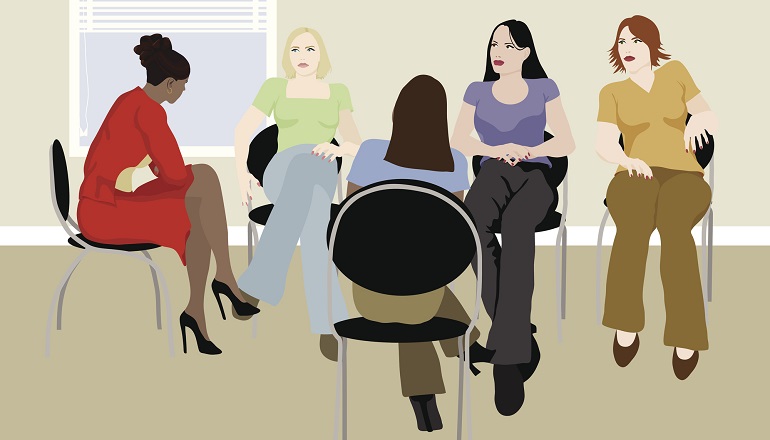I had a good cry on the way home in the car. My left foot was red with Virginia mud. A rain-smeared meeting agenda had fallen to the floor, where it must still be on this bright, windy morning. I’m sure one of them will call today. They were such nice people. I liked them all immediately.
My arrival at the meeting had been inauspicious. House numbers were unclear in a rainy spring dusk. I parked awkwardly and stepped out into landscaping that captured my loose shoe and the bottom of my pants. I apologized at the door to my host, who was gracious, and businesslike. One by one a handful of women arrived with umbrellas. Mutual acquaintances and a newspaper notice for a first meeting of this adoptive parents support group had brought these women here. I knew no one in the room.
Despite my hurried cleanup and my bare, un-groomed feet, I felt welcome. The host lent me a pair of warm, clean socks and I felt the relief of being with mothers with whom I would not be starting from scratch in the conversation of parenting. I would not be on my guard among these women who had most likely known similar doctor visits, exchanges in grocery lines, and self-doubt. No need to control the strident, prim tone that can strain a discussion of family trees, sibling resemblance, or the necessity of early infant-caregiver bonding.
Feeling Safe
This would not be like the La Leche League meetings, where seeking sisterhood, I faced pitying attention to my fumbling attempts to give my foster son the best I could: artificial milk through a tube on my nipple. Here, I would not feel like a penitent or a savior or someone whose children might be harboring danger in their dark genetic codes. Here I could feel understood without explaining.
This would not be the same as facing many of these same women out of context at a toddler playtime, where family resemblances are politely and so earnestly discussed. Or at the doctor’s office, passing time with strangers exchanging family stories of weak immune systems and similar coughs.
Here I could, and did, introduce myself as my son’s mother, and there was neither question nor doubt in another mother’s eyes. My infertility, my miscarriages—in this room I could say these words without worrying more about the listeners’ sensibilities than the point I was making. I was safe here. I fussed aloud over the length of waiting and the paperwork involved in finishing the adoption. I listened to these mothers and nodded in appreciation and empathy with their familiar stories, confidences, and fierce resolve.
We shared our love for this marvelous farming area where we raise our children in natural beauty and rural safety. We agreed on the cultural insularity of our community, and we saw the risk that our children, most of whom do not blend into the racial landscape here, will need armor against prejudice and ignorance some day.
Feeling Alone
As we sat down to begin the meeting, I felt as if I was among new friends. One mentioned a common interest I knew we would follow up on later. Another had a son in the same daycare as mine. I commiserated with the lady on my right about sleep deprivation. One who had seemed shy began to speak clearly and wisely.
So I relaxed and looked forward to the meeting as it began. I read the first topic on the list—whether or not to include domestic adoptive parents. The moderator gently explained why she had originally been against it and why she was now open to it. It was only a moment, a slow and sobering moment, as I realized that I was the only one there to whom the question applied. In another moment, I realized that the topic had been discussed privately among some who arrived before me. One more sentence, tenderly and diplomatically put, educated me in the importance of this issue to most of the women—perhaps all of the other women—there. My child looked like me—at least in a way that none of the children of these mothers did—and that was an essential issue.
The moderator talked about it being a group decision, that group size was an issue, that no one should rush to judgment.
I could not look into any of their eyes as I stood to leave. I apologized and said my husband was expecting me. I said I understood entirely—the group should not feel pressured in any way. I assured them, backing away, that it was so important to find a support group where you feel safe. I left the borrowed socks, so awkward to refold neatly, at the door. I walked back into the rain with as much dignity as I could, as exposed as I ever hope to be, wishing them all well.
Postscript:
The leader did indeed call me the next day to talk, and we now have a warm relationship. I have remained in touch with the group since the first meeting, although I am not an active participant. We live in a small town, and we all run into each other at parks and kid events. I write occasionally for our local weekly paper and was assigned an article on the group’s one-year anniversary (the group’s leader had requested me personally, which made me happy.) The group now includes several members who have adopted domestically.



